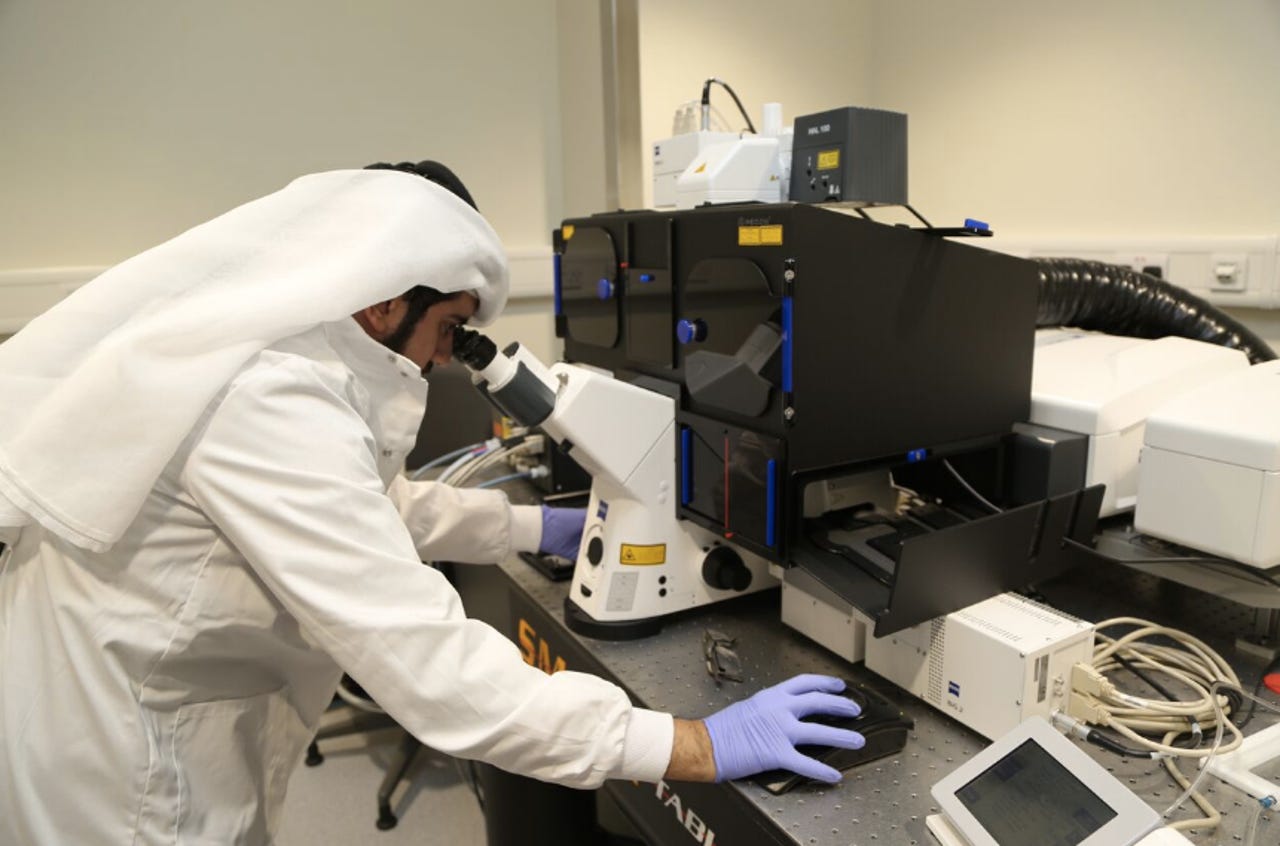IBM's compute, storage tech powers Qatar Genome Program


Researcher at the Sidra Medical Center in Qatar.
IBM has announced a new healthcare-focused collaboration with Qatar's Sidra Medical and Research Center.
Featured
Sidra is a biomedical research hospital and educational institution that's spearheading the Qatar Genome Program (QGP), one of the world's largest national genome medical research projects.
Sidra will now use IBM technology as the compute and storage infrastructure for the research center. Specifically, IBM's flash storage systems and software-defined infrastructure will be used to manage and store clinical genome sequencing data as well as provide Sidra's technology infrastructure capabilities that underpin the project.
"Analyzing hundreds of samples in parallel on a regular basis requires a robust HPC system to handle the load properly," said Dr. Mohamed-Ramzi Temanni, manager of the Bioinformatics Technical Group at Sidra. "The Sidra and IBM work effort is unique -- it was a joint collaboration between our bioinformatics experts who led the complex analysis component and built the pipelines while IBM customized the system to ensure best performance and ease of use."
In a similar collaboration, IBM announced that it's working with the University of Michigan's non-profit tranSMART Foundation to optimize its translational research platform, which is used by scientists to share pre-competitive translational research data.
IBM said the Foundation is using Power8 servers at the university for research and development and to host its web-based training for the tranSMART platform. These servers also serve as a public showcase of the foundation's open-source, open-data, and open-science approach to translational research.